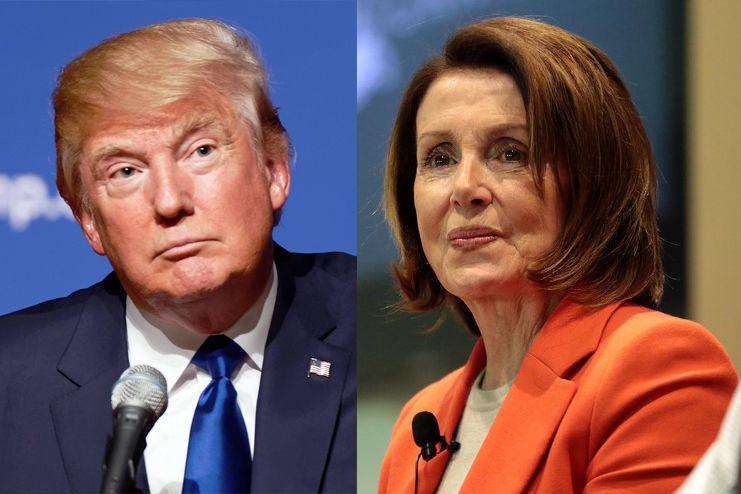How did we get here: State of the Union scheduled for Feb. 5
House Speaker Nancy Pelosi announced an official impeachment inquiry into President Donald Trump on Tuesday.
January 28, 2019
Every year, the president is required by the Constitution to inform Congress of the State of the Union. President Trump was scheduled to give the State of the Union address Tuesday, but Speaker of the House Nancy Pelosi announced Wednesday she would not be inviting him to speak before Congress until the shutdown ended.
Now that a temporary agreement has been reached, the speech is scheduled for Feb. 5.
David Andersen, an assistant professor of political science at Iowa State, said the speech is uniquely important for presidents.
“The State of the Union is one of the few opportunities where the president has to formally address everyone in Congress, and he gets a huge viewership from the American people,” Andersen said.
A major issue of the shutdown was the disagreement between Republicans and Democrats about funding for a barrier on the southern border of the country. Trump has expressed concerns about illegal immigration and campaigned on securing the border.
Pelosi and her Democratic colleagues have stated they will not approve funding for a wall, even going as far to reject a deal from Trump which included protections for DACA recipients, a longtime Democratic goal.
During the 35 day partial shutdown, Trump faced off with Pelosi over their political activity as well as policy issues.
On Jan. 16, Pelosi sent the president a letter suggesting he reschedule his address. She cited security and planning concerns for federal employees who were not being paid at the time.
The next day, Trump postponed the speaker’s trip to Afghanistan in a letter of his own, saying, “In light of the 800,000 great American workers not receiving pay, I am sure you would agree that postponing this public relations event is totally appropriate.”
On Wednesday, Pelosi sent Trump another letter saying she would “not consider a concurrent resolution authorizing the President’s State of the Union address in the House Chamber until government has opened.”
Later that day, Trump responded by emphasizing the importance of the address being delivered “on time, on schedule and very importantly, on location!”
Although the president briefly considered alternative venues for the speech, he announced in a tweet Wednesday he would not issue the State of the Union address until the shutdown ended.
An agreement to end the shutdown was reached Friday.
Although the government will be reopened until Feb. 15, no agreement has been reached to prevent another shutdown.
In a Rose Garden announcement Friday, Trump said there will be two options if a deal can’t be reached by the end of the three-week period.
“If we don’t get a fair deal from Congress, the government will either shut down on Feb. 15, again, or I will use the powers afforded to me under the laws and Constitution of the United States to address this emergency,” Trump said.
President Trump said he could declare a national emergency in order to build a wall. Andersen expressed concerns about the precedent that a declaration of a national emergency would set.
“It would be a disaster,” Andersen said.
He fears that one president taking a policy stance and issuing a national emergency about it could lead later presidents to overstep their Constitutional boundaries.
Assistant Professor of political science Tessa Ditonto said she shares similar concerns about the issue but Trump having not issued one yet might mean he doesn’t want to.
She said if the president were to attempt an action of that magnitude, legal battles would immediately break out.
Instead, she said he could take his argument to the State of the Union speech. While there, the president has the ability to address Congress and the nation with his ideas.
“He’ll talk a lot about the border, immigration and the wall,” Ditonto said.
The event would also give him an opportunity to take on his opponents — something Ditonto expects to hear on Feb. 5.
Ditonto said she thinks the event will be very politicized, but she hopes the president can embrace a unifying tone.
“After a government shutdown, a national problem that has affected a lot of people negatively, it would be healing to hear a more positive message from the president,” Ditonto said.







